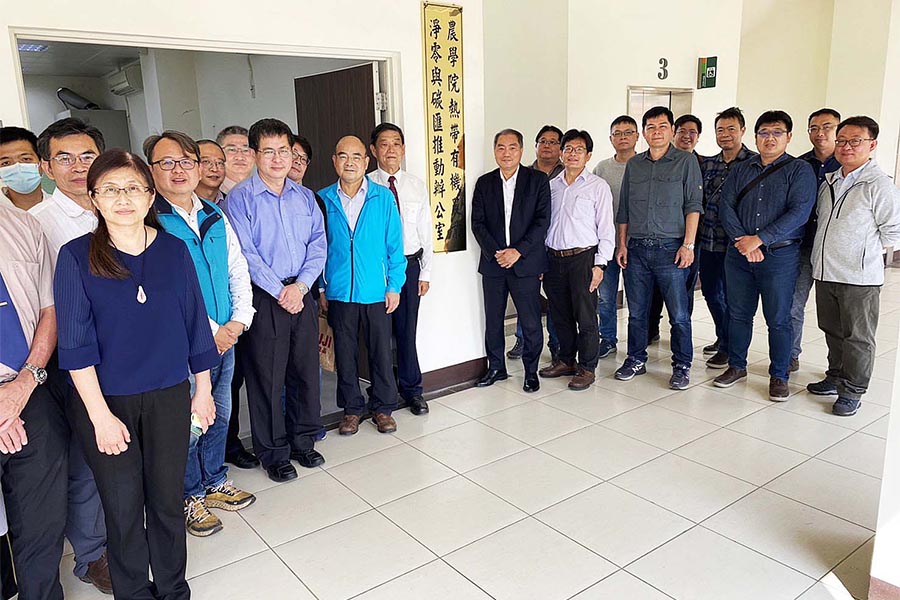With climate change and carbon emissions causing concern around the globe, agriculture is being looked to as the optimal path towards carbon sequestration and carbon neutrality. At National Pingtung University of Science and Technology (NPUST), where agriculture gets primary focus, teachers are being encouraged to invest in the promotion of agricultural net zero and carbon sink technology as soon as possible. To further this agenda, Dr. Ho-Hsien Chen, the dean of the College of Agriculture, has put together intercollege and interdepartmental teams, and established the “College of Agriculture Office for the Promotion of Net Zero and Carbon Sink Tropical Organic Agriculture”. By harnessing the research energy of the members, the goal is to help the agro-industrial ecosystem achieve carbon reduction goals at lowest cost on all levels of production.
Under the leadership of its president, Chang-Hsien Tai, NPUST has been committed to the development of a sustainable campus, and has incorporated the United Nations’ Sustainable Development Goals (SDGs) into the process. For seven consecutive years now, NPUST has been ranked first in Taiwan by the UI Green Metric World University Rankings, and in 2021 the Times Higher Education (UK) ranked NPUST first among Taiwan’s universities of science and technology and seventh overall for global influence based on the 17 SDGs set by the UN
The school’s new Office for the Promotion of Net Zero and Carbon Sink Tropical Organic Agriculture is a task-based group made up of experts from various fields of research, including Chinese herbal medicine, organic agriculture, biological materials, forestry, sloping environments, animal husbandry, aquaculture, food processing, plant medicine, rice and grain production, cold chains and other professional fields. Professor Chong-Ho Wang, an honorary professor of the Department of Agricultural Production, has also been invited to serve as a consultant to the team.
For those participating in the 2015 Paris Climate Agreement, the goal is to keep warming to 1.5°C. In this vein, at the 26th UN Climate Summit (COP26) held in October, 2021, governments were urged to formulate carbon reduction schedules and take concrete action to implement them. Back in 2010, Taiwan initiated a plan and began researching strategies to achieve net-zero carbon emissions. In 2013, based on the “National Climate Change Adaptation Action Plan” and related bills, promotional work began and in 2015, the “Greenhouse Gas Reduction and Management Act” was ratified. A year later, the Executive Yuan established its “Energy and Carbon Reduction Office” to further promote the agenda. More recently, in September 2021, the Council of Agriculture (COA) also established an “Office for Climate Change Adaptation and Net-Zero Emissions Projects” to coordinate the planning of agricultural-related departments, address climate change policies, integrate cross-agency affairs and promote agencies dedicated to the execution thereof, with the goal of reaching net-neutrality by 2050.
Expectations are that the university’s research teams will actively seek cooperation with the Council of Agriculture, the Agriculture and Food Agency, the Central Government and related industries so that NPUST can increase its contributions to the effort by helping the agriculture industry reduce carbon emissions, increase carbon sinks, and ultimately achieve the goal of net-zero carbon emissions.

